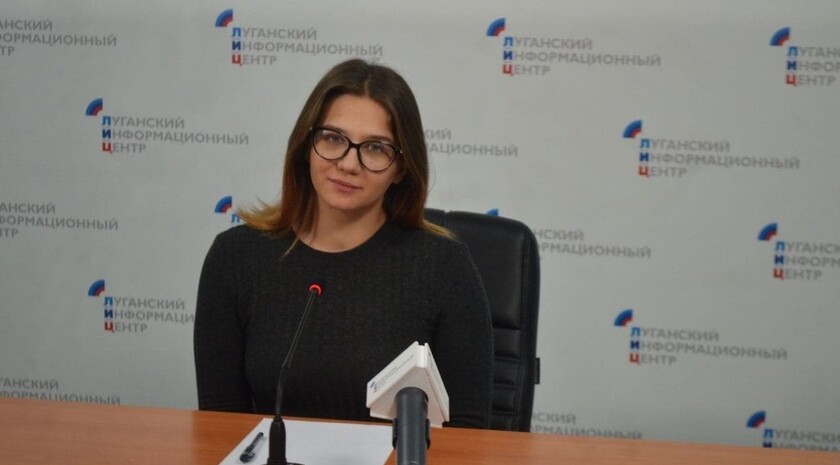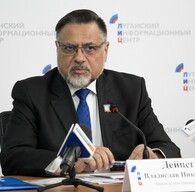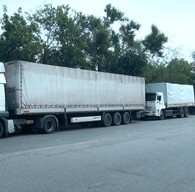The Contact Group subgroup on security issues was unable to address the agenda due to the destructive position of the Ukrainian representatives, press secretary of the Lugansk People’s Republic delegation in the Contact Group Maria Kovshar said after the subgroup’s video conference.
“The security subgroup’s work was very unproductive due to Kiev’s position,” Kovshar said. “Ukraine’s destructive position did not allow to address a single issue on the agenda, and the coordinator ( of the subgroup on security issues Yasar Halit Cevic) had to close the session early.”
“The Ukrainian representative made all efforts to derail the subgroup’s work,” she said.
“At first, Mr (Ukrainian Deputy Defence Minister, Ukraine’s representatives in the working group on security issues Alexander) Polischuk attempted to reduce the work to empty rhetoric speculating on political issues that had nothing to do with the subgroup’s competence. When the attempt failed, he resorted to the favorite trick of all Ukrainian negotiators as he began nonsensical rant about the status, powers and parties to the conflict. Eventually, coordinator Cevik questioned the expediency of further discussion,” the LPR representative said.
“Ukraine was not willing to work on the practical security task, i.e. the project to improve the coordination mechanism and put it in operation, blocking any constructive moves,” she said.
“Kiev was working on its key task: not to allow direct interaction between Ukraine and the Republics which is stipulated by the coordination mechanism. It seems that Ukraine is not interesting in making peace in Donbass,” Kovshar said.
As proof, she cited statistics: the OSCE Special Monitoring Mission has recorded nearly 4,000 ceasefire violations over the past 14 days, including 662 explosions (33 percent of these violations happened in the Zolotoye security area and neighboring settlements). It was in this area that an LPR civilian and a militiaman were seriously wounded in Ukrainian strikes.
“Regular strikes by Ukraine actually turned the Zolotoye area from the de-escalation zone into hotspot. Unsurprisingly, Ukraine refuses to provide full indefinite security guarantees to the new checkpoints. One of them is located precisely in this hotspot,” the LPR representative said.
On top of that, Kiev continues to terrorize the Donbass civilians with humanitarian problems: Ukraine has failed to meet 32 requests for security guarantees for the period of repairs on energy and water supply facilities.
“Kiev has not responded to our questions when it will let repairs be carried out, so that water and electricity be provided to people,” Kovshar said.
The Ukrainian government launched the so-called anti-terrorist operation against Donbass in April 2014. Conflict settlement relies on the Package of Measures for the Implementation of the Minsk Agreements, signed on February 12, 2015 in the Belarussian capital by the Contact Group members and coordinated by the Normandy Four heads of states (Russia, Germany, France and Ukraine). The UN Security Council approved the document by Resolution No 2202 of February 17, 2015 and called upon the parties to ensure its implementation.
The document provides for comprehensive ceasefire, withdrawal of all heavy weapons from the contact line, starting a dialog on reconstruction of social and economic ties between Kiev and Donbass. It also envisages carrying out constitutional reform in Ukraine providing for decentralization and adopting permanent legislation on a special status of certain areas of the Donetsk and Lugansk regions.
To facilitate the work of the Contact Group, four working groups were set up under its aegis to deal with issues of security, politics, return of internally displaced people and refuges, as well as with social, humanitarian, economic and rehabilitation issues. *i*s



